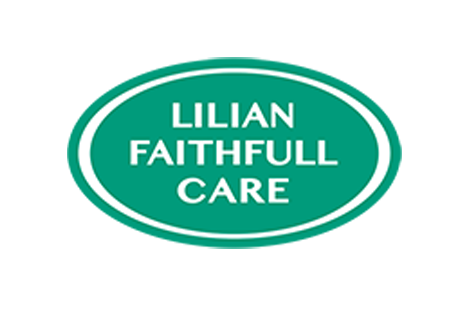
With phone scams targeting elderly individuals on the rise, families are facing an urgent challenge: how to protect their loved ones from financial and emotional harm. Lilian Faithfull Care, a Gloucestershire based care charity, believes that every older person deserves to feel safe and secure, free from the fear of exploitation. Yet, scammers are becoming more sophisticated, using artificial intelligence (AI) to mimic voices and personalise attacks, making these crimes even harder to detect.
Fraudsters often pose as bank representatives, utility providers, or even government agencies, pressuring their targets into urgent payments or the disclosure of personal details. AI-driven scams, such as the notorious “grandparent scam,” have reached new levels of deception, with criminals using deepfake voice technology to impersonate loved ones in distress. It is now more crucial than ever for families to be aware of these tactics and take proactive steps to safeguard elderly relatives.
How families can take action:
- Recognising a scam: Be vigilant for red flags, such as unexpected calls demanding immediate payments or personal information. AI-powered scams can sound eerily convincing, making it essential to verify any urgent requests.
- Starting the conversation: Discussing phone scams with elderly loved ones is a sensitive but necessary step. Approach these conversations with reassurance and without judgment, reinforcing that it’s always okay to double-check before acting on a call.
- Simple safety measures: Encourage the use of call-blocking technology, set clear rules about sharing personal details over the phone, and create a verified contact list to help distinguish legitimate calls from fraudulent ones.
- Responding to a scam: If an elderly person has been targeted, immediate action is crucial. Reporting the scam to authorities, securing bank accounts, and seeking support from organisations like Age UK can help mitigate potential harm.
The growing threat of phone scams in the UK
Recent studies highlight the alarming rise in scams targeting older adults. A 2024 report by the Global Anti-Scam Alliance (GASA) revealed that scams accounted for £11.4 billion in losses over the past year, with the average victim losing approximately £1,443. Additionally, Age UK reports that nearly a fifth of individuals over 50 – equivalent to 4.9 million people – now fear answering their phones due to the growing prevalence of scams.
These figures underscore the need for continued vigilance and support. Kevin Snowball, CEO at Lilian Faithfull Care, stresses the importance of community action:
“The rise in sophisticated phone scams is deeply concerning. Lilian Faithfull Care are committed to not only caring for our elderly residents but also equipping families with the knowledge they need to protect their loved ones. By staying informed, talking openly, and implementing safety measures, we can work together to prevent these scams and ensure our elderly community feels secure.”
Top phone scams targeting older audiences:
- Impersonation scams (bank and government fraud): Fraudsters pose as bank officials, HM Revenue & Customs (HMRC), or other government agencies, claiming there is an urgent issue with the victim’s account or tax payments. They pressure individuals into transferring money or sharing sensitive financial details.
- Tech support scams: Scammers impersonate representatives from well-known technology companies such as Microsoft or BT, claiming that the victim’s computer has been infected with a virus. They then request remote access to “fix” the issue while actually stealing personal data or installing malware.
- Family emergency scams (Grandparent Scam): Fraudsters pretend to be a distressed relative, often a grandchild, claiming to be in trouble and in urgent need of financial assistance. The scammer may even use AI-generated voice technology to sound more convincing.
As scams continue to evolve, so must our approach to tackling them. Through education, support, and collective action, we can help protect the most vulnerable members of our society. Lilian Faithfull Care urges families to stay proactive, remain informed, and foster open discussions to ensure their elderly loved ones can navigate phone communications safely and confidently.
Story Credits: https://www.lilianfaithfull.co.uk/




